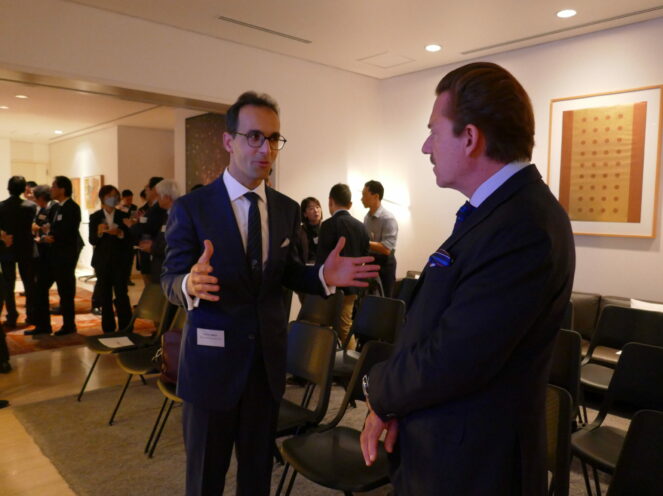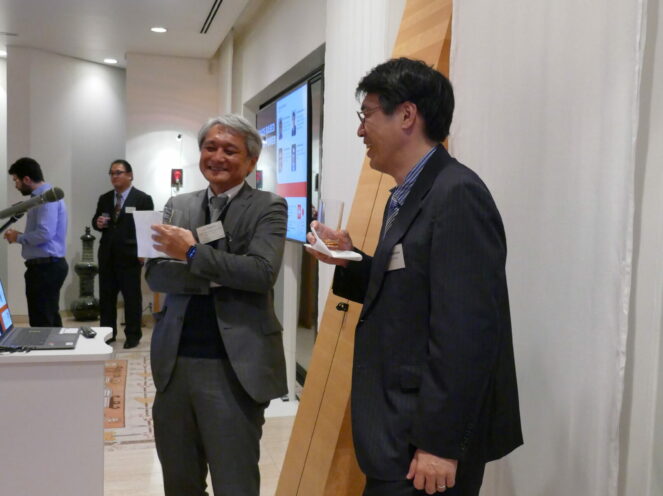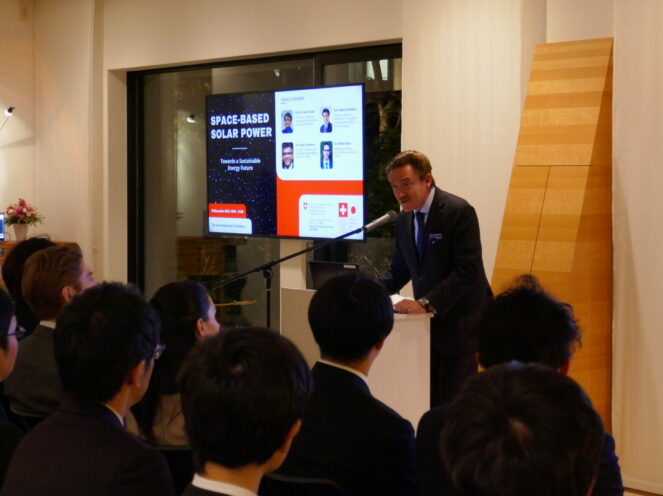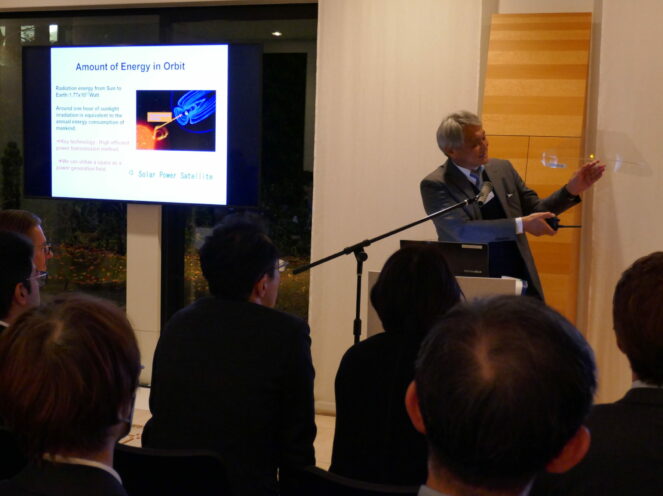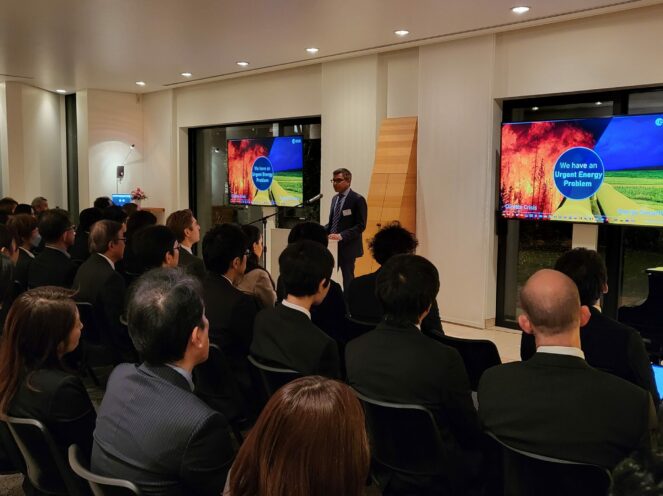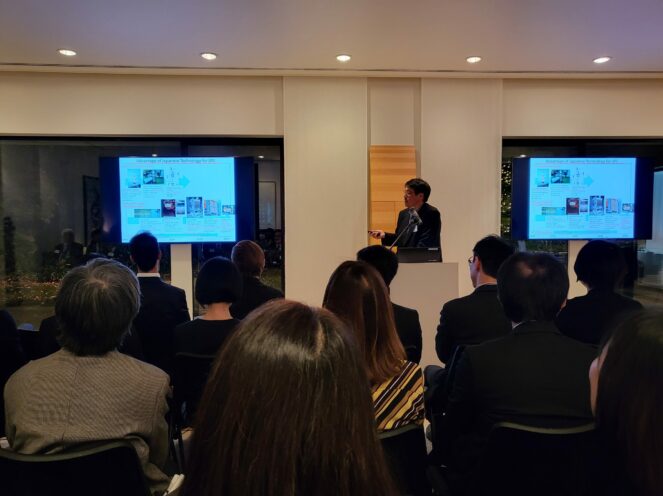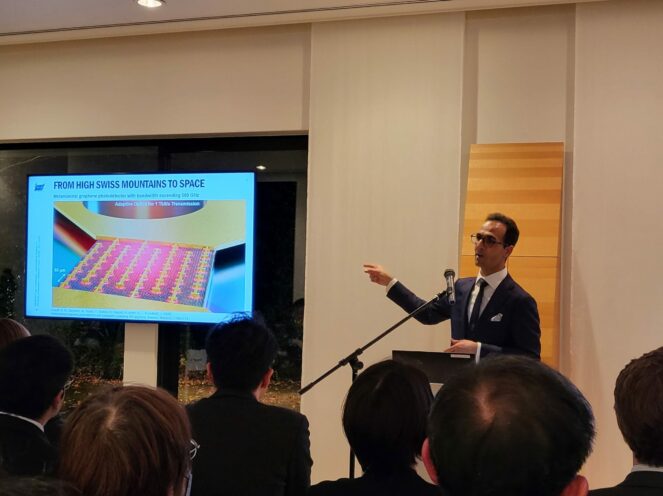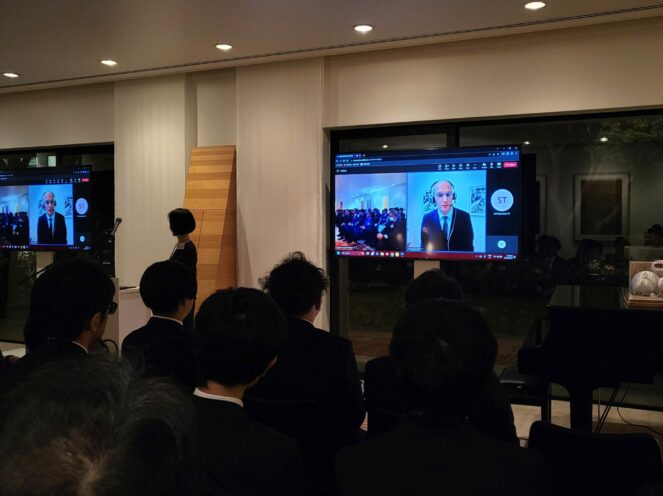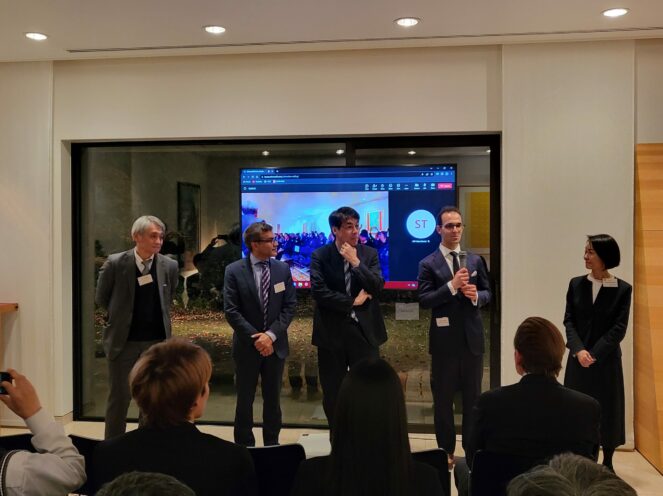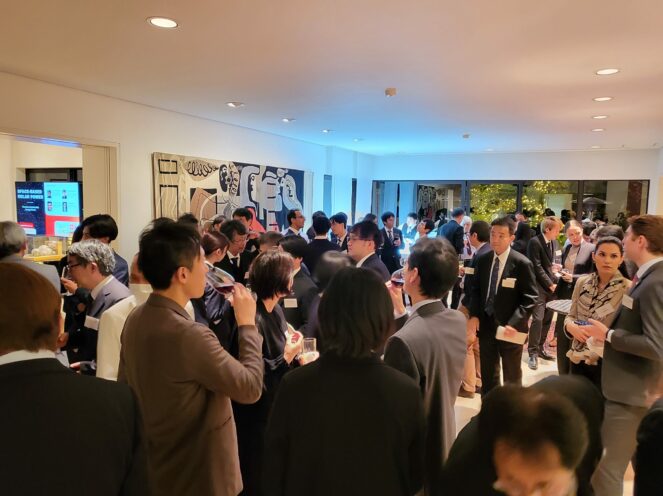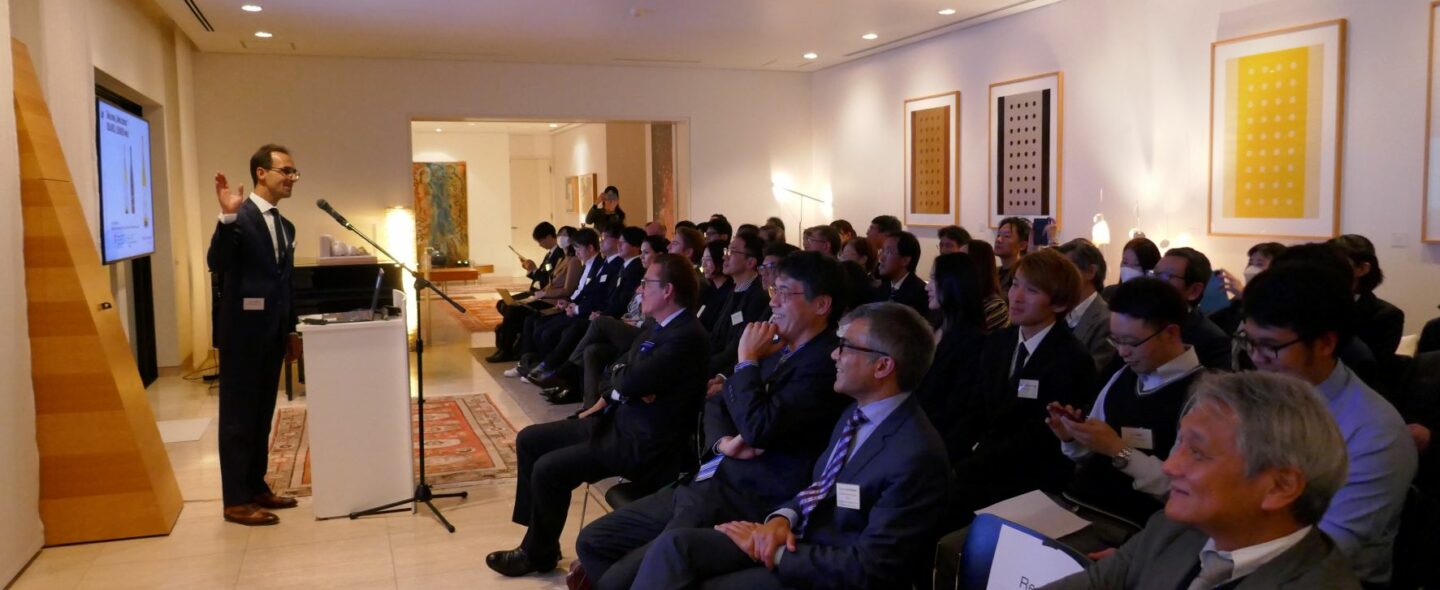
The workshop, organized by the Science and Technology Office Tokyo of the Embassy of Switzerland in Japan, took place on 30 November, 2023, at the Swiss Residence. Presenters included representatives from the Japan Aerospace Exploration Agency (JAXA), the European Space Agency (ESA), Kyoto University and Sirin Orbital System AG from Zurich. The event enjoyed a full house with notable guests from the government such as the Director-General, Mr. Jun Kazeki, and the Director, Mr. Koji Ina of the Space Industry Office of the Ministry of Economy, Trade and Industry (METI), as well as a broad range of industry experts, professors, and students from nearly a dozen different universities.
The event started with an address by the host, the Ambassador of Switzerland in Japan, Dr. Andreas Baum, who emphasized Switzerland’s excellence in space research and its already well-established collaborative relationship with Japan on space missions, bilaterally or via ESA. The audience then had the opportunity to hear insightful talks about recent progress in Space-Based Solar Power (SBSP) given by leading experts from Japan and Europe.
Prof. Dr. Koji Tanaka from JAXA opened the series of talks with an update on Japanese activities in SBSP. The innovative SOLARIS Initiative from ESA was introduced by its Lead, Dr. Sanjay Vijendran. Prof. Naoki Shinohara from Kyoto University shared the recent R&D progress on Wireless Power Transfer (WPT) technology. Lastly, Dr. Matteo Madi from Sirin Orbital System AG gave a holistic view of the opportunities and benefits these key technologies could bring to our society. He also raised awareness about the potential impact of WPT technology on living species and why this should also be taken into consideration to avoid potential detrimental consequences of SBSP on the environment.
Dr. Renato Krpoun, Head of the Swiss Space Office at the State Secretariat for Education, Research, and Innovation (SERI), who is also the first Swiss to Chair the Council of ESA at the delegate level since July, joined online from Bern to give the closing remarks. Over a glass of Swiss wine, all speakers and guests then could deepen the discussions and have interesting exchanges during the networking dinner.
SBSP is the idea of collecting solar energy in space and transmitting it to Earth or other places, e.g., the moon, as a renewable energy source. The concept lies in the deployment of solar collectors such as solar panels in orbit, where sunlight is constant and unobstructed. The collected energy is then beamed to the desired place using microwave or laser technology. While this concept of collecting solar energy in outer space has been around for quite some time, SBSP has recently gained considerable momentum in the world as it has the potential to provide a continuous and abundant source of clean energy towards a net-zero carbon world.
